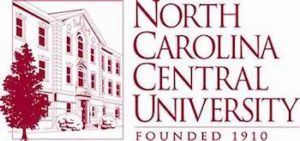
*On this date in 1910, we celebrate the opening of North Carolina Central University, one of America's many Historical Black Colleges and Universities (HBCUs).
North Carolina Central University was chartered in 1909 and opened its doors to students a year later as the National Religious Training School and Chautauqua. The founder, Dr. James E. Shepard, served as the institution's President until he died in 1947. From its start, North Carolina Central University has declared its purpose to be the development of young men and women of the character and sound academic training requisite for real service to the nation.
The institution's early years were characterized by a wealth of enthusiasm and high endeavor, not money. Private donations and student fees constituted the total financial support of the school, and the heavy burden of collecting funds rested on the President. A consequence was the sale and reorganization of the school in 1915 as the National Training School. During this period of its history, Mrs. Russell Sage of New York was a generous benefactor of the school.
In 1923, the General Assembly of North Carolina appropriated funds to purchase and maintain the school, which thus became a publicly supported institution such as Durham State Normal School. Two years later, the General Assembly redefined the mission of the school, naming it the North Carolina College for Negroes and dedicating it to the offering of liberal arts education and the preparation of teachers and principals of secondary schools. North Carolina College for Negroes (NCC) thus became the nation's first state-supported liberal arts college for black students. At its 1927 session, the General Assembly began a program of expansion of the college plant with the support of Angus W. McLean, then the Governor of North Carolina.
State appropriations were supplemented by a generous gift from B.N. Duke, a Durham philanthropist, and by contributions from other citizens of Durham in 1929. The 1930s afforded federal grants and State appropriations for further physical expansion and improvement of educational facilities, with building continuing until the beginning of World War II. The Southern Association of Colleges and Secondary Schools accredited North Carolina College in 1937 as an "A" class institution.
The General Assembly of 1939 authorized the establishment of graduate study programs in liberal arts and the professions. Graduate courses in the Arts and Sciences were offered that year, while the School of Law began operation in 1940 and the School of Library Science was established in 1941. In 1947, the legislature changed the name to North Carolina College at Durham. Shepard served as president until he died in 1947. Dr. Alfonso Elder was installed in 1948 as his successor.
North Carolina College at Durham became North Carolina Central University in 1969. On July 1, 1972, all the state’s public four-year colleges and universities were joined to become the Consolidated University of North Carolina. As part of the transition, the chief executive’s title changed from president to chancellor. Dr. Albert N. Whiting presided over the transition, leading the university from 1967 until 1983.
Dr. LeRoy T. Walker, vice chancellor for university relations and an internationally renowned track and field coach, succeeded him. Dr. Tyronza R. Richmond succeeded Walker in 1986; Richmond’s tenure saw the establishment of the School of Education. In 1993, Dr. Julius L. Chambers, a noted civil rights attorney, became the first NCCU alumnus to lead the university. He launched a major capital effort that led to constructing a biomedical/biotechnology research institute and a new School of Education building.
Dr. James H. Ammons became chancellor in June 2001, eight months after state voters approved a major bond issue for UNC system capital improvements. NCCU was among the campuses targeted for growth, and under Ammons’ leadership, the university experienced a surge in enrollment. Dr. Charlie Nelms succeeded Ammons in 2007. During his five-year tenure, he emphasized student success and focused on improving retention and graduation rates. Nelms presided over NCCU’s centennial celebration during the 2009-10 year.
Under his leadership, U.S. News & World Report ranked NCCU as the nation’s No. 1 public HBCU for two consecutive years. Nelms retired in 2012 and was succeeded interim by Charles L. Becton, a prominent attorney and former North Carolina Court of Appeals judge. The new Chancellor, Dr. Debra Saunders-White, assumed her role effective June 1, 2013. Saunders-White outlined her initial priorities as raising student retention and graduation rates and improving technology and operational efficiency campus-wide. Notable NCCU alumni include Maynard Jackson, and professors include Ed Wilson, Marjorie Browne, and more.